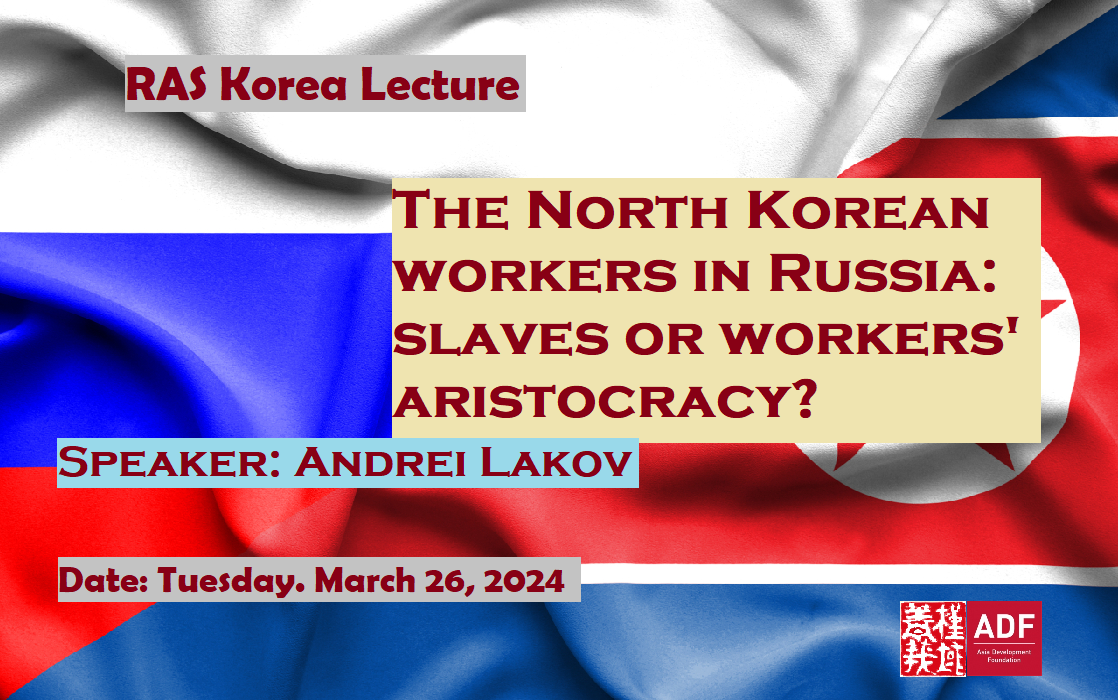time zone will be applied.
Report this post?

DATE: Tuesday. March 26, 2024. 7:30PM (Seoul)
VENUE: Fifth floor (Conference Room) of FAST FIVE Tower (Namdaemun-ro 9-gil 24, Jung-gu, Seoul)
ADMISSION (Online & In-person): Free for Members; W10,000 for Non-members; W5,000 for Non-member students (Student ID requested)
SYNOPSIS:
There are good reasons to expect that in the near future North Korean workers will start arriving in Russia in large numbers. The history of labor migration from North Korea to Russia began in 1946, and in the subsequent years there has never been a time when North Koreans were not employed somewhere in the USSR/Russia. These people are often portrayed as slaves, as forced labor, but if this is the case, why do they pay large bribes for an opportunity to go? The lecture will be about the history of North Korean labor in Russia and the changes in ways the North Koreans have been employed there.
BIO:
Andrei Lankov was born on 26 July 1963 in Leningrad (now Petersburg). He completed his undergraduate and graduate studies at Leningrad State University (Ph.D. in 1989). In 1996-2004, he taught Korean history at the Australian National University, and since 2004 he teaches at
Kookmin University, currently at the College of Social Studies, and also serves as the Director of Korearisk.com group. His major research interest is North Korean history and society. His major English language publications on North Korea include: From Stalin to Kim Il Sung: The Formation of North Korea, 1945-1960 (Rutgers University Press, 2003); Crisis in North Korea: The Failure of De-Stalinization, 1956 (University of Hawaii Press, 2004); North of the DMZ: Essays on Daily Life in North Korea (McFarland and Company, 2007); The Real North Korea (Oxford University Press, 2013). He has contributed to Wall Street Journal, New York Times, Financial Times, Newsweek, and published a number of academic articles, including articles in Foreign Affairs and Foreign Policy. In 2017, the Foreign Policy magazine included him in the list of Global Thinkers.